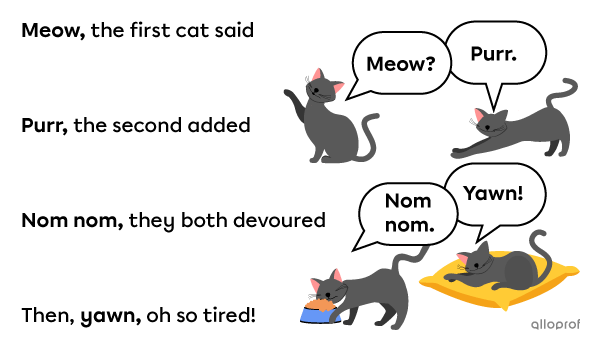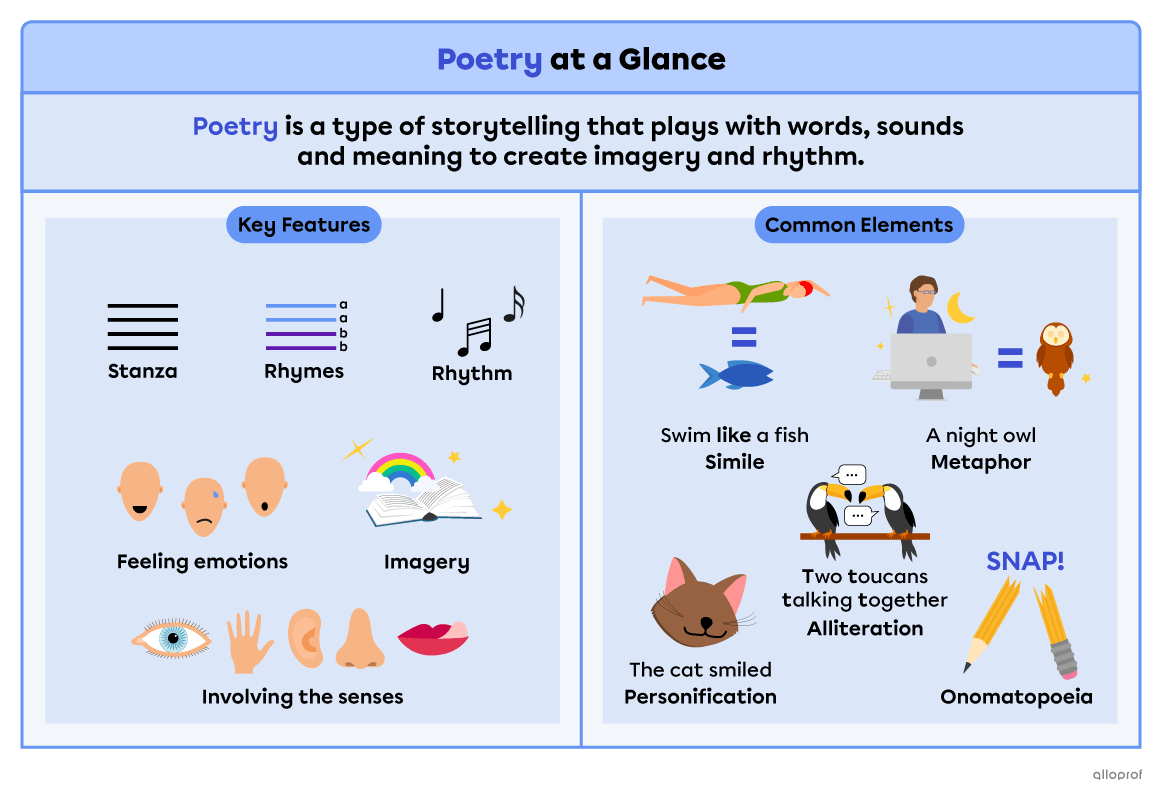Poetry is a type of colorful and imaginative storytelling. It plays with words, using their sounds and meaning to create imagery and rhythm.
Poetry uses very specific features. Here are some examples of the main ones.
Not all poems use all of the following features.
| Structure | Poems are made of lines that aren’t always full sentences |
| Paragraph-like groups of lines are called stanzas | |
| Rhymes | Words that sound alike |
| Rhythm | Beats or patterns of sounds, like in a song |
| Sounds used to create musicality | |
| Feelings & imagery | Can make you feel emotions |
| Can involve the 5 senses, as if you were there | |
| Create pictures in your mind |
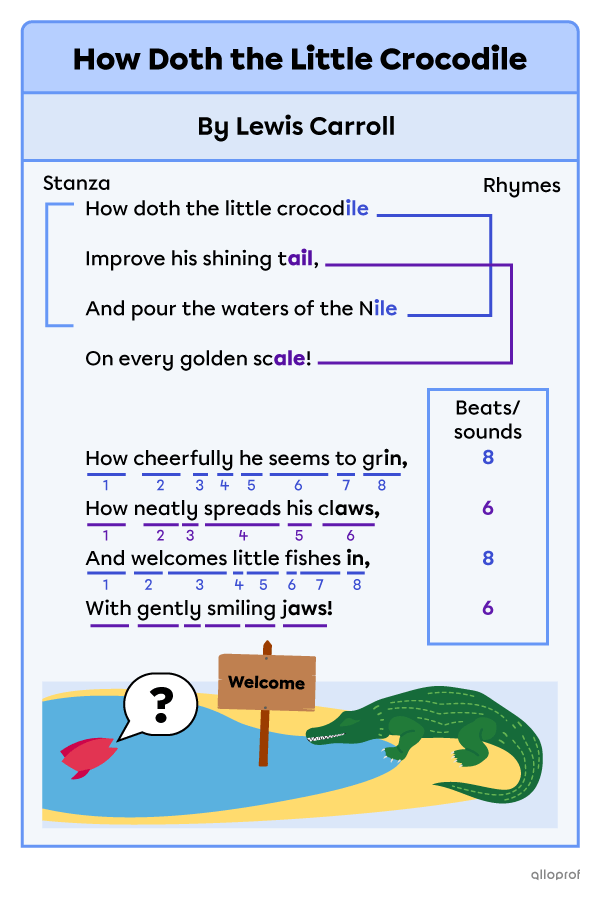
Poetry uses figurative language to create interesting images in the reader’s mind.
Figurative language consists of words or phrases used to say something different than their usual meanings.
Here are some figurative language examples often found in poetry.
Similes and metaphors compare 2 things to show they are similar.
→ Similes make the comparison using the words like or as.
→ Metaphors make the comparison by saying one thing is the other, without the words like or as.
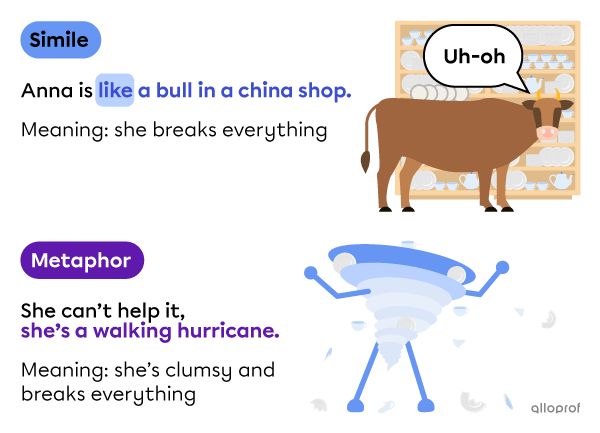
Personification is giving human qualities to animals or objects.
It’s when animals or objects behave like humans.
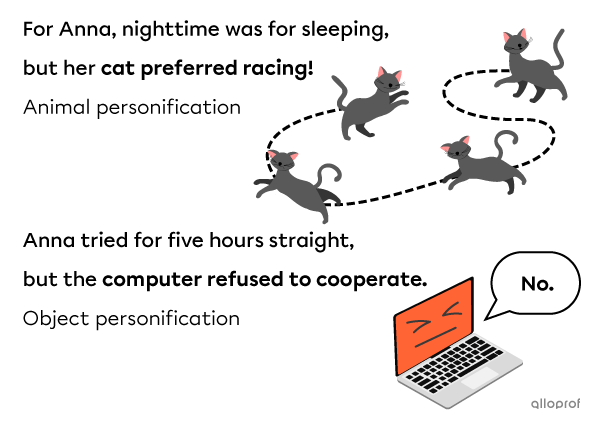
Alliteration is when several words in a sentence start with the same sound or letter.
The repetition creates a pattern, a beat, that brings musicality to the words used.
![Examples of alliterations. Alliteration with the letter “a”: Anna and Annie adopted another animal. Alliteration with the sound [k]: Curious cats create kind captivating company!](/sites/default/files/styles/1200w/public/2025-10/ie1233-4-poetry-FL-alliteration.png?itok=I1t1rBB5)
Onomatopoeia are words that sound like what they mean.
They are often used as sound effects.
